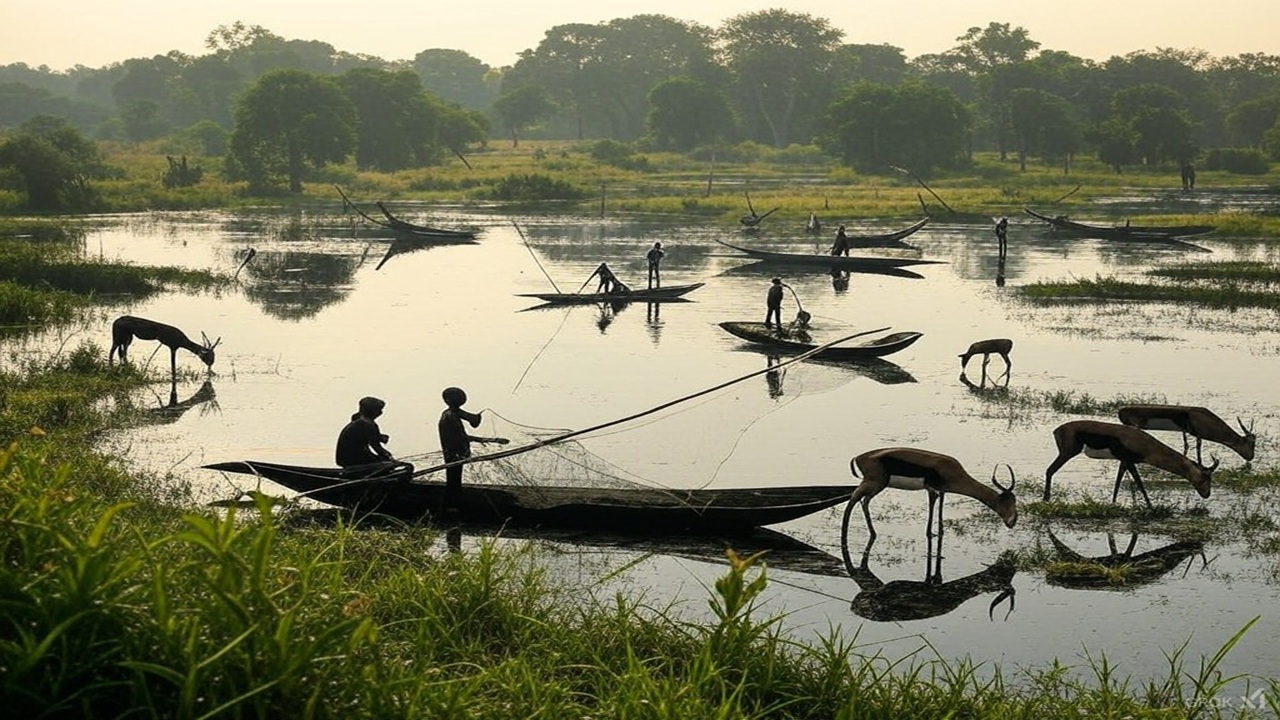AfDB Calls for Urgent Investment to Restore Africa’s Inland Fisheries
The review underscores that inland fisheries are not only vital for nutrition and food security but also for livelihoods, resilience, and social cohesion across the continent.

- Country:
- Ivory Coast
The African Development Bank (AfDB) has released a new report titled Review of African Inland Fisheries, urging governments, development partners, and the private sector to scale up investment in restoring aquatic habitats and integrating fisheries into broader water resource management. The review underscores that inland fisheries are not only vital for nutrition and food security but also for livelihoods, resilience, and social cohesion across the continent.
A Lifeline for Millions
The review estimates that around five million people in Africa are directly employed in inland fisheries, while an additional 10 million people—half of them women—depend on the sector through subsistence fishing and related activities. This makes inland fisheries one of the most significant but underappreciated sources of employment and income in rural Africa.
“Realising this potential is crucial to meeting the food and nutritional demands of Africa’s growing population. However, this cannot be achieved without a harmonised and integrated approach to other activities that are necessary for development, from energy production to agriculture and industrial activities,” the report states.
Challenges: Pollution, Degradation, and Climate Pressures
Although inland fisheries have shown resilience to climate change, their sustainability depends on the health of aquatic ecosystems and effective water governance. Across Africa, many freshwater systems face degradation from:
-
Pollution caused by agriculture, mining, and urban runoff.
-
Habitat destruction through deforestation and wetland conversion.
-
Hydrological changes from dam construction and irrigation.
-
Overfishing in certain high-pressure areas.
Examples include the heavily degraded marshlands of Lake Victoria, which support millions of livelihoods, and the Falémé River in Senegal, one of the most polluted rivers in the region.
Recommendations: Nature-Based and Integrated Solutions
The AfDB review calls for a new integrated approach that brings fisheries into water resource planning alongside other priorities such as energy and agriculture. Among its recommendations are:
-
Restoring aquatic habitats in modified landscapes such as reservoirs.
-
Adopting nature-based solutions, including reconnecting floodplains, rehabilitating riparian zones, and reducing pollution.
-
Creating artificial floods downstream of hydroelectric dams to mimic natural conditions for fish breeding, as trialed in Kenya’s Tana River and on the Senegal River.
-
Protecting wetlands and marshes to enhance fish productivity while also improving water quality and flood resilience.
These measures would not only increase fish production but also contribute to climate adaptation, safeguard biodiversity, and improve freshwater availability.
Building on Global Momentum
The report builds on the joint appeal made in September 2024 in Dakar by the AfDB and the Food and Agriculture Organisation of the United Nations (FAO), which called for greater recognition of inland fisheries’ contributions to nutrition, local economies, and social stability.
At that meeting, both institutions highlighted how inland fisheries remain undervalued in national development agendas, despite their capacity to boost food systems and support rural transformation.
Unlocking Inland Fisheries’ Potential
With Africa’s population projected to double by 2050, the demand for protein-rich food sources will intensify. Inland fisheries—if sustainably managed—could play a critical role in reducing hunger and malnutrition, while also generating employment and income for millions.
To unlock this potential, the AfDB stresses the need for policy alignment, strong governance, and targeted financing to ensure that inland fisheries are fully integrated into Africa’s wider development and climate resilience strategies.
The AfDB’s Review of African Inland Fisheries makes clear that fisheries are more than just a source of food—they are a pillar of rural livelihoods, social cohesion, and ecological resilience. But without urgent action to restore habitats and integrate fisheries into water and land management, the sector risks further decline.










